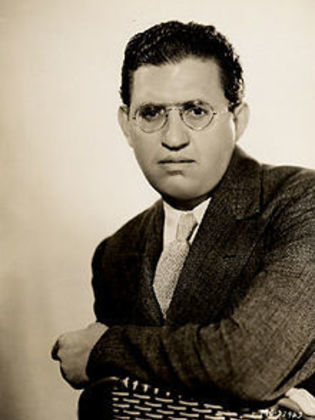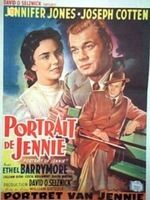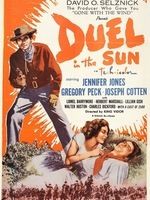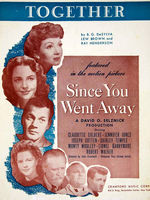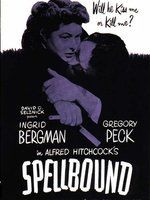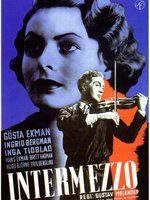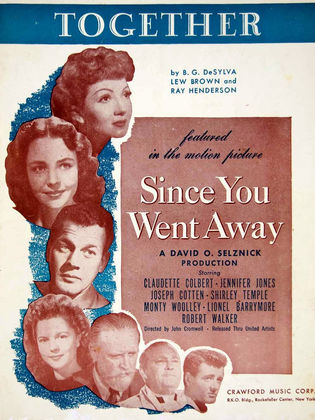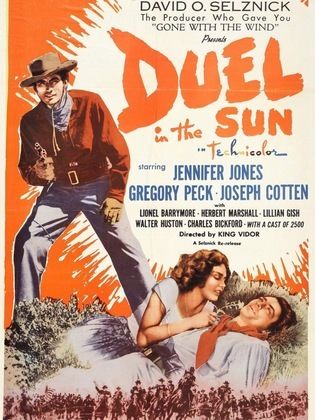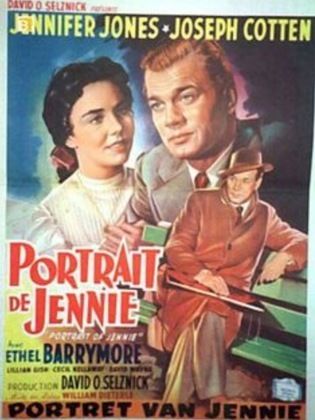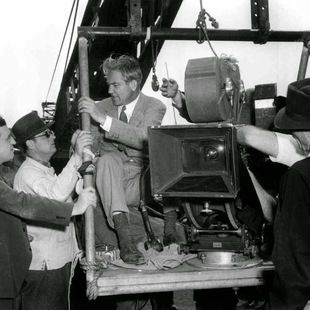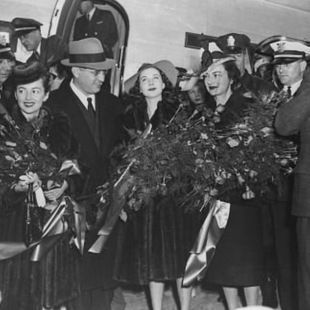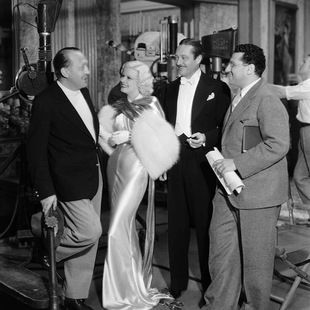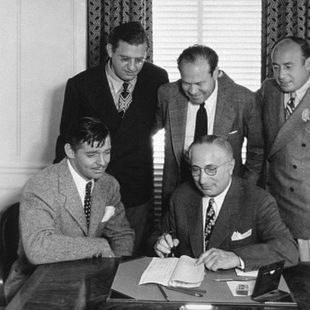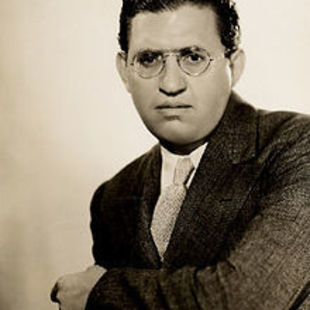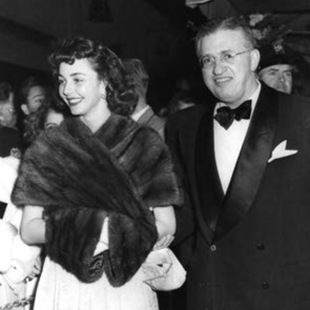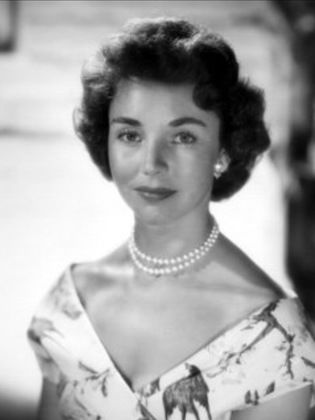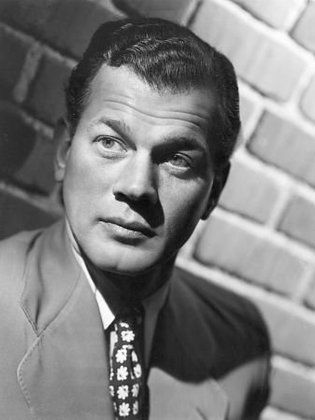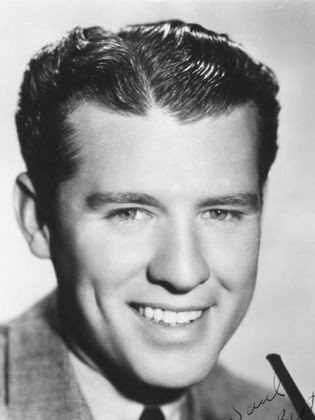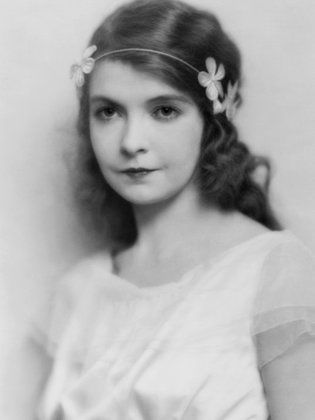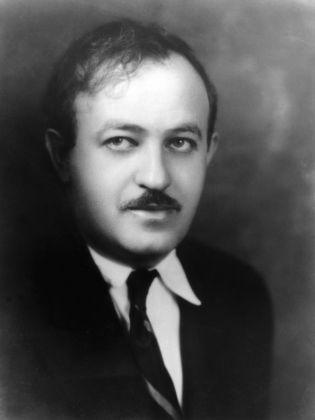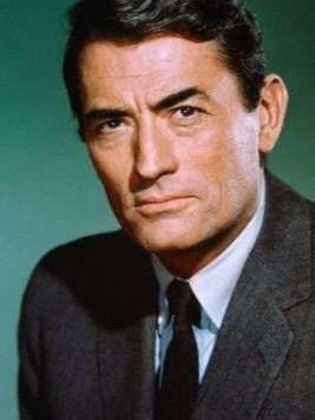David O. Selznick (1902 - 1965) ديفيد أو سيلزنيك
Biography
An American movie producer, best known for producing the films Gone with the Wind (1939) and Rebecca (1940), which both won Academy Awards for Best Picture. He was born to a Jewish family in Pittsburgh, Pennsylvania. He attended Columbia University and worked as an apprentice...Read more with his father, Lewis J. Selznick, a silent movie producer and distributor, until he filed for bankruptcy in 1923. In 1926, he moved to Hollywood and, with the help of his father's acquaintances, he landed a job as an assistant story editor at MGM. He left for Paramount Pictures in 1928, then joined RKO as Head of Production. His films with RKO include A Bill of Divorcement (1932), What Price Hollywood? (1932), and King Kong (1933). In 1933, he returned to work at MGM. He produced Dinner at Eight (1933), David Copperfield (1935), Anna Karenina (1935), and A Tale of Two Cities (1935). Despite his success with MGM, Paramount, and RKO, he had a keen desire to become an independent producer for his own studio. In 1935, he realized this goal by founding Selznick International Pictures and distributed his films through United Artists. He continued his successes with such classics as The Garden of Allah (1936), The Prisoner of Zenda (1937), A Star Is Born (1937), and Nothing Sacred (1937). He won the Irving G. Thalberg Memorial Award in 1940. He produced in 1940 his second consecutive Academy Award winning film, Rebecca, Alfred Hitchcock's first film in Hollywood. Rebecca is the only Hitchcock film to win an Oscar for Best Picture. He died on June 22, 1965 of a heart attack and was buried in Forest Lawn Memorial Park Cemetery in Glendale, California.
Watch Online (Sponsored By Yango Play)
-
-
- Ward w Shokolata
- 2025 - Series
-
-
- Rocky El Ghalaba
- 2025 - Movie
-
-
- One Last Sin
- 2025 - Series
-
-
- 2 Qahwa
- 2025 - Series
-
-
- Siko Siko
- 2025 - Movie
-
-
- Al Shater
- 2025 - Movie
Known for
(According to views)
More details
An American movie producer, best known for producing the films Gone with the Wind (1939) and Rebecca (1940), which both won Academy Awards for Best Picture. He was born to a Jewish...Read more family in Pittsburgh, Pennsylvania. He attended Columbia University and worked as an apprentice with his father, Lewis J. Selznick, a silent movie producer and distributor, until he filed for bankruptcy in 1923. In 1926, he moved to Hollywood and, with the help of his father's acquaintances, he landed a job as an assistant story editor at MGM. He left for Paramount Pictures in 1928, then joined RKO as Head of Production. His films with RKO include A Bill of Divorcement (1932), What Price Hollywood? (1932), and King Kong (1933). In 1933, he returned to work at MGM. He produced Dinner at Eight (1933), David Copperfield (1935), Anna Karenina (1935), and A Tale of Two Cities (1935). Despite his success with MGM, Paramount, and RKO, he had a keen desire to become an independent producer for his own studio. In 1935, he realized this goal by founding Selznick International Pictures and distributed his films through United Artists. He continued his successes with such classics as The Garden of Allah (1936), The Prisoner of Zenda (1937), A Star Is Born (1937), and Nothing Sacred (1937). He won the Irving G. Thalberg Memorial Award in 1940. He produced in 1940 his second consecutive Academy Award winning film, Rebecca, Alfred Hitchcock's first film in Hollywood. Rebecca is the only Hitchcock film to win an Oscar for Best Picture. He died on June 22, 1965 of a heart attack and was buried in Forest Lawn Memorial Park Cemetery in Glendale, California.
- Nationality:
- US

